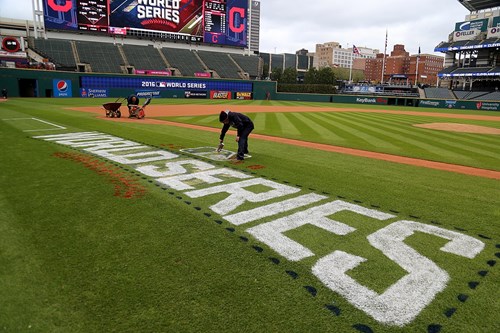By Simon Fitzjohn, Employability & Enrichment Manager at UCFB
With Major League Baseball's annual World Series now underway, eyes across the world will be focused on the Washington Nationals and the Houston Astros as they battle the best-of-seven games to be crowned the greatest team in the sport.
And just a quick glance at the two teams involved will tell you a lot about what I believe US sports have very right in terms of their structure and set-up. For starters, the Nationals are making their first-ever appearance in the ‘Fall Classic’, having only come into existence in 2004 when the-then Montreal Expos upped sticks and moved to the US capital.

For the Astros, it will mark the second time in three seasons that they have made it to the World Series, but also in a decade that saw them post three 100-loss seasons back-to-back, a run that saw them proclaimed by all and sundry as the worst team in the sport.
To put it into a football context, it would be (if there were no relegation) the equivalent of Huddersfield Town or Cardiff City finishing bottom of the Premier League for three years in a row, only to then be crowned champions on multiple occasions within a matter of a handful of years.
And the ‘no relegation’ element is the key here, with the US franchise system – and especially the draft process that allows the poorest teams the first picks when it comes to recruiting the best college/young players – pivotal in pushing forward what the Americans like to describe as ‘competitive balance’, where every team has the opportunity to retool and rebuild with the very real prospect of being big-hitters within a few years (the same goes for the NFL).
What we've all been waiting for. #WorldSeries
— MLB (@MLB) October 21, 2019
Since 2000 for example, there have been 12 different winners of the World Series – and the same team has never won consecutive titles in the timeframe. Last year’s champions, the Boston Red Sox (who have the league’s biggest payroll), did not even make the playoffs this time around.
It is a system designed to give fans of teams like the Astros hope during the bad times, a system that actively stops the elite hoovering up the young talent as they do in football, and a system that allows franchises the luxury of planning for the long haul, a dimension that the factors of relegation fears and fickle fan bases often banish. By harnessing and building around quality (and cheap) young talent, it allows the likes of the Astros the chance to spend their money on enticing game-winning pitchers to join (or stay with) the journey, as they have done with the likes of Justin Verlander.
In a way, it means I really don’t care who comes out on top when I set my alarm clock to watch the action this week as, no matter how clichéd it may be to say, the sport of baseball is the winner.
















